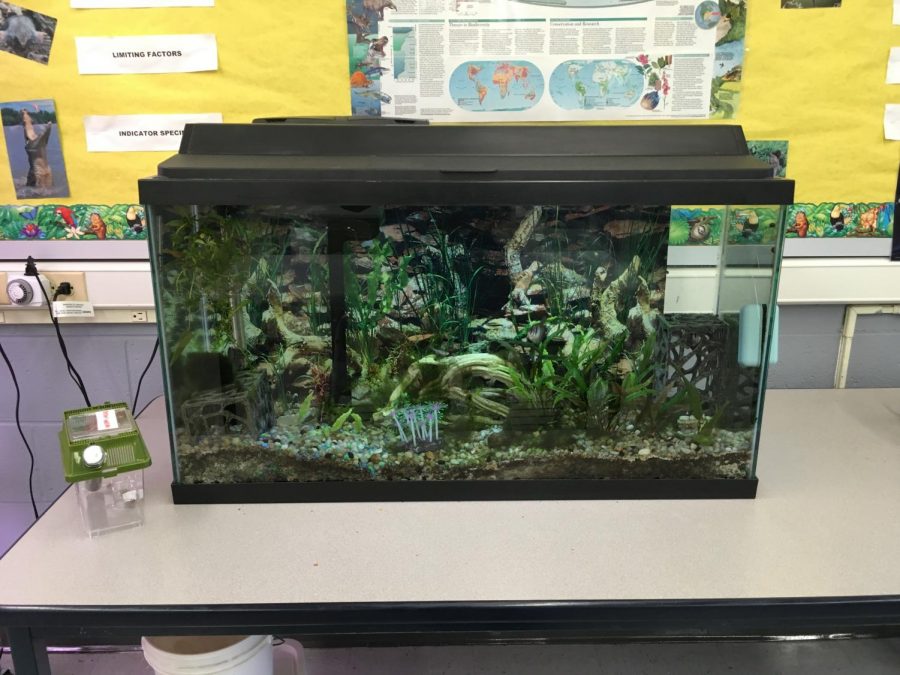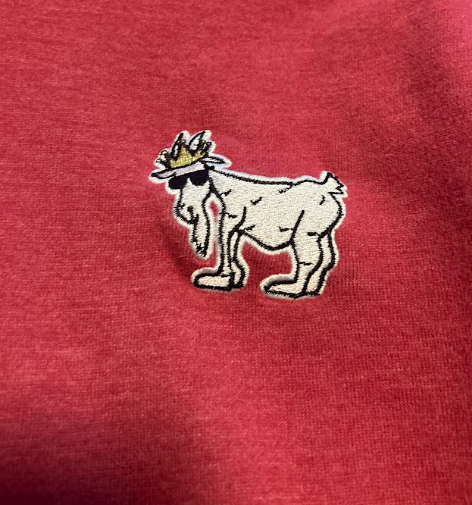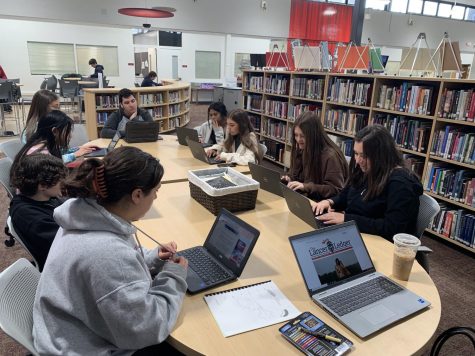New Elective Proposal: Nature and People
Fish and aquatic life hanging out in the Environmental Science room for class.
There is an estimated total of 8.7 million different species of life occupying our planet, with even more life to be discovered in the unexplored depths of the ocean. These lifeforms are divided into five main kingdoms: animals, plants, fungi, Protoctista, and Monera. The plant population alone consists of 391,000 different species.
Lakeland Regional High School touches upon climate change, animals, and plants during classes such as Marine Science, Environmental Science, and Biology, but those classes are unable to go truly in depth with some of the vital topics of nature due to the mandatory schedule of lessons that they have to follow. Marine Science only focuses on marine life, Biology focuses on the broader concept of organic life, and Environmental Science focuses more on climate and human impact rather than specific classes of animals and plants. Other than those classes, our education system leaves a lot of the natural world left untaught, relying on students’ self-education to fill in the gap.
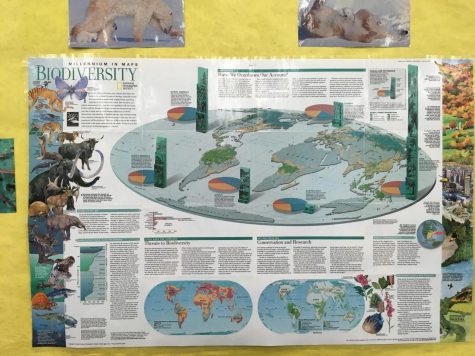
The biodiversity poster currently hanging up in the Environmental Science room shows the broader topic taught by the class.
However, the school can go beyond that. LRHS should take a step towards educating its students to be more aware about nature, its modern frailty, and the value all animals and plants have.
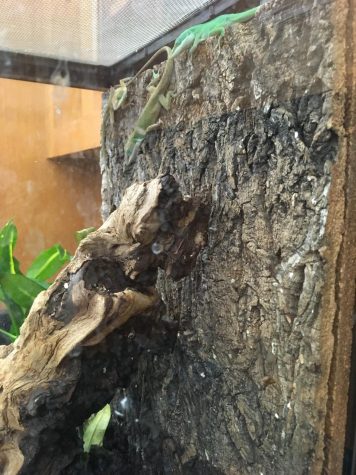
Some of the animal life hanging out in the Environmental Science room. The new class would be filled with (school approved) animals for education purposes as well as bonding.
LRHS should have a new elective class called Nature and People, which would cover the following topics: extinction crises, endangered crises, habitat destruction, exploration of the five kingdoms, botany, animals, human-animal interaction, pet society, conservation, zoos, aquariums, greenhouses, wilderness survival, genetic modification, as well as an introduction to the veterinary, rescue, and floral fields, which are not covered in the science classes her at LRHS due to how specific and time consuming they are, as the classes have broader topics that they are required to cover before the end of the year.
Due to the vast archive of available books, videos, research, and documentaries for teaching material found online, teaching the class could be relatively simple. In fact, with the number of research materials at their fingertips, students will never run out of animals and plants to research and report on. The real question is: what would be the value to having this new elective? Why teach this class?
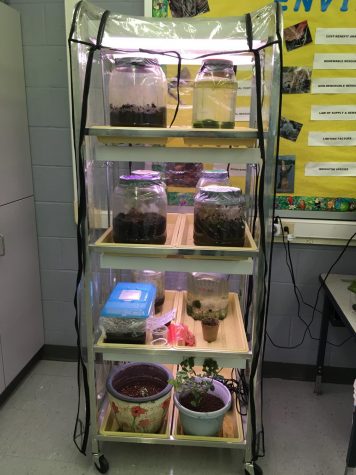
A display of the miniature ecosystem projects done in the Environmental Science class. A small scale example of what could be done in the new class.
Given the current issues in our society, five of the topics that will be explored in the class are the destruction of habitats, animal/plant population decreases and endangerment, genetic modification, conservation, and human-animal interaction. These five topics are relevant and timely, as well as problems that many students will have to deal with when they are grown up.
It is important for members of Generation Z and the following generation to be educated and aware of what is going on in their environment. Part of the curriculum would be a “Do Now” assignment one class a week in which students research and summarize a new article regarding any of the topics of the class, keeping students up to date on the latest happenings in the world of nature and people. This would include learning about new species, the latest data about animal populations, the extinction of a species, the rehabilitation of animals, current issues regarding habitat destruction, and the latest ocean news.
The class would not be all about climate change and current crises, though. Another benefit to the class would be the information and skills students learn from researching so many specicies of plants and animals For example: identifying whether mushrooms are edible or not; determining whether berries are poisonous or not; whether an animal is safe to approach or not; whether an animal is poisonous or venomous; identification of edible plants; whether water is safe to drink or not; tree and biome identification; and treating injuries received from animals and plants. Of course, the skill range will vary depending on how the teacher chooses to teach the class.
There is another aspect to the class that will be brought about through students’ independent research on exoctic creatures, ecosystems, and plants, as well as taught through various documentaries, which is emotional growth. The class will open students’ eyes to the seemingly endless wonders of nature. Nowadays, many students are lacking the admiration and respect that plants and animals deserve. Not only will students be interested and in awe of the many intriguing animals and plants they will learn about in the class, but it will help drive their passion to help fix the on-going and future problems that society and nature will face. At the same time, the class will encourage students to engage with nature more, as well as possibly help out at animal shelters. This newfound respect for animals may even lower or eliminate an individual’s violent response to bugs and pests found in their lives.
Overall, the class Nature and People would be a benefit both to the students here at LRHS and society. Students would have a new elective to take that would not only be an intriguing class that goes beyond the current classes that dabble in the kingdoms of life, but one that will also teach them useful skills, help them grow emotionally in regard to respect and admiration, keep up to date with current events in the world of nature, as well as prepare them for the future of nature and people.

Vince is a senior at LRHS and a prominent staff writer for The Lancer Ledger. He has been a dedicated writer for over two years straight, devoting most...


